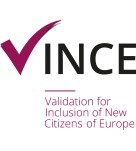Bulgaria does not have in place a uniform legal framework or national system, policy or strategy on validation, which would encompass all educational sectors. At the HE level some aspects of validation, in terms of awarding credits and access to higher education, are covered by the Higher Education Act. However, validation of knowledge, skills and competences attained through non-formal and informal learning is one of the priorities of the National Strategy for Lifelong Learning (2014-2020), which foresees the introduction of a comprehensive system for VPL by 2018. Currently VPL is most developed in the VET sector, where a system of validation, based on learning outcomes (as specified in the State Education Requirements), has been adopted through an amendment to the VET Act in July 2014 and the “Ordinance No. 2 on the Conditions and Procedures for the Validation of Professional Knowledge, Skills and Competences”. The methods and tools developed for validation in the VET sector are planned to be transferred into the general and HE sectors, however with some modifications. While the validation system in the VET sector is characterised by a centralised (top-down) approach, which intends to involve as much as possible all social partners, in the HE sector a decentralised (bottom-up) approach will be more appropriate due to autonomy of HE institutions.
VPL in Higher Education
Validation in HE is to some extent regulated by the Higher Education Act, however HE institutions operate validation autonomously and in accordance to their internal (educational) standards. In the HE system ECTS credits have been in use since 2004 and the HE Act stipulates that validation can be used for exemption from a part of a course (through acquisition of credits) as well as for access to higher education. But although there are some examples of good practices (for example, recognition of learning outcomes of vocational colleges by higher education institutions), recognition of non-formal and informal learning is in general not a mass practice among Bulgarian HE institutions.
Validation in the third sector
There is currently no system for recognition of skills and competences acquired by volunteers. The main challenges regarding recognition of skills and competences acquired through volunteering relate to limited knowledge and popularity in the society of the impact of volunteering on skills development – e.g. the Youthpass certificate is still not known as a document reflecting informal learning and knowledge of young people acquired under European youth projects. The National Youth Strategy 2012-2020 foresees the introduction of “voluntary licence” as an official document certifying circumstances related to volunteering for young people. There have been some projects, focused on volunteers and volunteering, which gave volunteers the chance to gain, for example, communication, social and multicultural competences, and receive a certificate of non-formal training.
Validation in the Labour Market
Skills auditing and validation of prior learning are not well developed in the labour sector. There is no legislation and no collective agreements related to validation or skills audits.
The Public Employment Agency provides measures similar to skills audits within different projects and through regular career guidance, which includes consultation, facilitation and matching of skills and competences of jobseekers with the requirements of job vacancies, possibly with information on retraining options. Skills are possibly identified through preparation of the individual profile.
However, the private sector (through stakeholders such as employers’ and employees’ organisations, trade unions) is being increasingly involved in skills identification and VPL, through cooperation in establishing the national system of VPL and through cooperation in different projects promoting and developing VPL, such as the “System for Validation of Non-formal acquired Knowledge, Skills and Competences – New Opportunity for my Future” project (2013-2015), which included trainings for validation practitioners, which were also attended by representatives of employers’ and employees’ organisations.
Funding of VPL
There is no national framework explicitly allocating funds for validation. Costs of the validation procedure can be covered either by individuals, companies, HE institutions, or by programmes and projects financed by national, regional or EU funds. The costs for the VPL process are payed at the rate established by the institution, whereby the amounts should not exceed the actual costs incurred by the institution
References (All accessed on 19th of June 2017)
- Country Report Bulgaria – 2016 update to the European Inventory on Validation of Non-formal and Informal Learning https://cumulus.cedefop.europa.eu/files/vetelib/2016/2016_validate_BG.pdf
- Country Report Bulgaria – European Inventory on Validation of Non-formal and Informal Learning 2014 https://cumulus.cedefop.europa.eu/files/vetelib/2014/87050_BG.pdf
- Higher Education Act (available in Bulgarian only)
- Vocational Education and Training Act (available in Bulgarian only)
- Ordinance No. 2 on the Conditions and Procedures for the Validation of Professional Knowledge, Skills and Competences (available in Bulgarian only)
More Information
- Documents about validation in Bulgaria in the VINCE library
- Country Report Bulgaria: 2016 update to the European inventory on validation of non-formal and informal learning. https://cumulus.cedefop.europa.eu/files/vetelib/2016/2016_validate_BG.pdf


